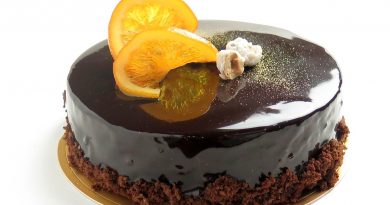Sensitive children and trauma
(OMTimes | Courtney Marchesani) Sensitive Children and Trauma-Informed Care. Trauma-informed practices are gaining speed in community mental health settings, private practices, and Emergency Rooms around the country. For individuals with Post-Traumatic Stress Disorder or who have experienced trauma, this is a positive step forward in understanding that health and wellness is achievable despite overwhelming sensory symptoms and their intensity. The CDC’s Adverse Childhood Experience (ACE) Study showed that of 17,000 patients, almost two-thirds, experienced childhood abuse, neglect, and some form of exposure to traumatic stress
The ACE outcomes reveal experiencing trauma in childhood leads to increased risk for alcohol abuse, Depression, intimate partner violence, and many serious health complications in adulthood (Adverse Childhood Experiences, CDC, 2009 – 2014). When treatment providers are educated and working within a trauma-informed practice this means they recognize the many different phases of trauma and use integrated models of treatment which have the highest standards for reducing and preventing re-traumatization.
Although awareness of adult PTSD continues to grow and expand, in children and in our classrooms it remains largely ignored and misunderstood. It is not a coincidence that individuals’ who have suffered violence directly at the hands of a family member will become extraordinarily sensitive to their environment. Even a third generational descendant will likely develop high sensitivity whether that is physically, mentally, emotionally, or spiritually. This is one of the first signs for a caring pastor, teacher, parent, or advocate to recognize. The extra sensitive individual is an expert at environmental attunement for detecting safety or harm.
Pearl S. Buck once said, “The truly creative mind in any field is no more than this: A human creature born abnormally, inhumanly sensitive.” Many individuals who suffer from extreme sensitivity will tell you it hurts to be sensitive. We feel like outsiders, looking in. When asked to define a sensitive, an image usually comes to mind of a familiar face. Maybe it’s a shy kid who sat next to us in our fifth grade classroom who didn’t talk much. Surely, we tell ourselves, they must have been “sensitive” to peer pressure or criticism which is why they weren’t more outgoing in school – because of the risk.
This is partly true, but tells us more about us and society and its association or stigma with the word ‘sensitive.’ High sensitivity is not well understood in terms of development, although it has been recognized for at least a decade in psychology. In our culture, especially in team sports, using the word ‘sensitive’ means weakness and labels a whole group of individuals who are all quite unique with regard to their levels of sensory processing, but no less tough in their approach toward life.
There are different kinds of sensitive people. For example, there are extroverted people who are also highly sensitive. This may seem like a counter-intuitive notion. ‘Aren’t all sensitive persons introverted?’ we ask ourselves. It’s also very confusing for the extroverted sensitive who feels everything and projects their emotions outward in an attempt to ground their intense feelings through socialization. Many of these differences are attributed to home environment, parental models, temperament, internalization of external stimuli, sensory types and levels experienced.
Many artists and performers are highly sensitive and use art as a medium to channel their intense feelings, loneliness, and isolation into powerful works. When they do this, we the audience are transformed in a positive way. Witnessing artistic expression forces us to reflect and deepen our own inner work. These patterns of contradiction may seem unlikely, such as putting deeply personal work out into the world in the face of harsh criticism. Yet, creative people and their ability of fusing the internal world with the external brings their powerful soul to life delivering audiences an experience of beauty, symmetry, power, and vulnerability – which equals true freedom from limitation. Artistic self-expression frees the mind and opens a doorway into the soul. When that door opens it swings open wide delivering powerful messages about the human experience. These messages are manna from heaven in a world which very much in need of healing.
Even if your child or young adult may not be particularly artistic, art when explored without criticism, offers a deep well for growth and a sanctuary for the highly sensitive. As our young people are on a path of self-discovery and hopefully self-mastery, we can know for certain their pain and suffering overwhelms their senses at times. By providing safety, structure, nourishment, opportunities for creativity, and love parents give their sensitive children opportunities to express their own feelings of sadness, loneliness, or overwhelm. Moving the energy of these intense emotions through the body prevents sickness and unburdens their deeply felt emotions.
Here are a few sure fire ways to tell your child has a high sensitivity:
Headaches, abdominal pain, skin flare ups, moods fluctuate quickly, retreating from public places into isolation, total immersion into music for hours, jumpy when watching movies, avoidance of social functions or time with peers, reports of unusual sensory/perception, fixation on video games as a way to take control in overwhelming circumstances.
These are only a few examples as everyone is different. Making time to attune with children is a simple anecdote for unraveling extreme sensitivity. Building trust and safety starts by showing our kids we ourselves experience sensitivity and there is nothing “wrong” with them. Feeling deeply is a gift and exploring meaning are normal challenges we all face as human beings. It is through our unconditional acceptance that our children will know they can have faith and trust in us and in the world.
About the author
Courtney Marchesani is the creator of Intuitive Soul Language™. She designs breakthrough inspirational empowerment programs for traumatized individuals. As an award winning coach and advocate, Courtney empowers others with her strategies learned from Wilhelm Reich’s character structure, Jacob Moreno’s psychodrama, and intuition. She is attaining her M.A. in Expressive Art Therapy from California Institute of Integral Studies and her works have been featured in The Huffington Post GPS for the Soul, Elephant Journal, and OMTimes Magazine.
Source: OMTimes
You may also like:




